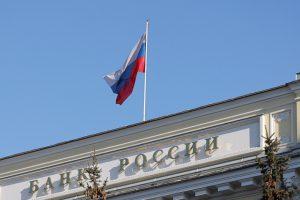BLOOMBERG
The European Union (EU) has assessed that it can’t legally confiscate outright frozen Russian assets and instead is focussing on using those assets temporarily, according to a document obtained by Bloomberg.
The EU is zeroing in on two options as it keeps exploring how it could harness more than €200 billion ($219 billion) in frozen Russian central bank assets and channel them to Ukraine, the report said. Many of the funds are at settlement giant Euroclear Ltd, where they generated nearly €750 million by the first quarter of this year.
The bloc is expected to seek a mandate to work on this policy from EU leaders when they meet in Brussels next week.
An EU working party on the use of Russian reserves frozen under the bloc’s sanctions has been discussing how to gather information and assessing options under EU and international law. Its members see “no credible legal avenue allowing for the confiscation of frozen or immobilised assets on the sole basis of these assets being under EU restrictive measures,†it concluded. Instead it favours channeling windfall profits from the investments to Ukraine.
Austrian Foreign Minister Alexander Schallenberg urged caution in an interview with Bloomberg Television.
“I fully understand the emotionality of the debate and that we say we have to get our hands on these assets,†he said.
“But we are rule-of-law states. We are defending a rules-based international order,†Schallenberg added. “So whatever we do in this endeavor has to be absolutely water-tight. It can be challenged, and it might be challenged in front of European or American courts. If any of these actions were to be lifted by a judge, it would be a diplomatic and economic disaster.â€
Several major global banks are concerned that appropriating Russian assets could cause Moscow to retaliate against their remaining interests in the country, according to people familiar with the matter. Russia could make life harder for foreign banks and target their local staff, an executive at one bank said. A second executive said his bank isn’t lobbying directly but is opposed in principle to confiscation by the EU.
The European Central Bank (ECB) has warned that using interest rate proceeds from the assets could encourage official reserve holders to turn their back on the euro, the report said. The central bank believes international coordination will play a key role in mitigating the risks.
The paper identified significant legal obstacles to one of the two options the bloc is exploring: temporarily using liquid assets of Russia’s central bank — in other words, investing the assets and directing the proceeds to Ukraine.
The group preferred a second option: a so-called windfall contribution. Firms with Russian holdings that are generating large profits by investing them could be required to transfer a substantial amount to the EU. This could reduce legal risk for the bloc because the EU wouldn’t be managing them.
EU officials wrote that this model wouldn’t affect financial stability, would preserve the business models of the firms involved and would be fair in terms of tax.
“It would not impact the legal situation of the assets,†they added.
 The Gulf Time Newspaper One of the finest business newspapers in the UAE brought to you by our professional writers and editors.
The Gulf Time Newspaper One of the finest business newspapers in the UAE brought to you by our professional writers and editors.
